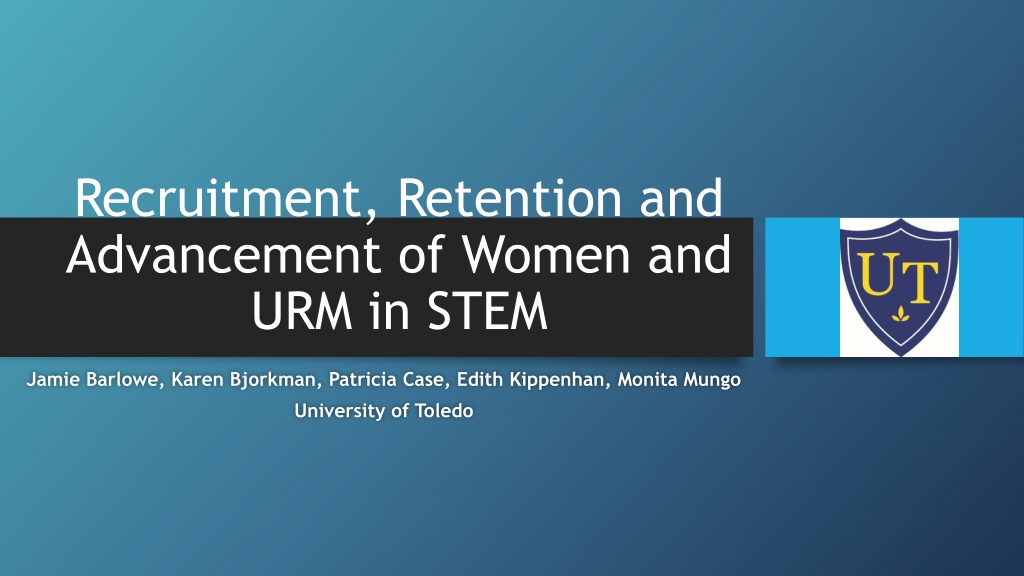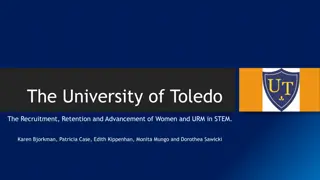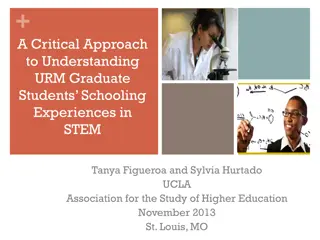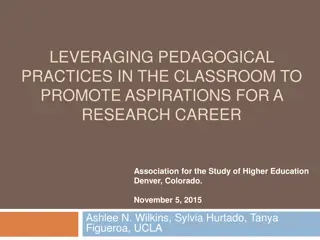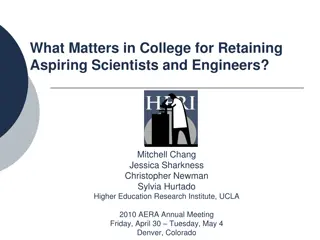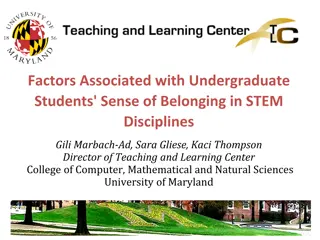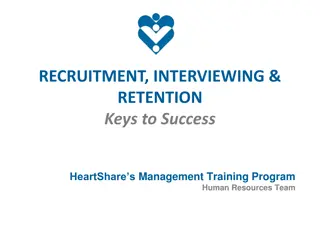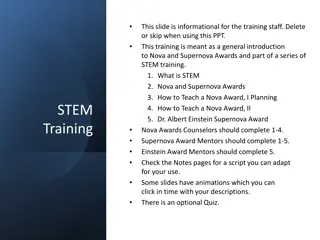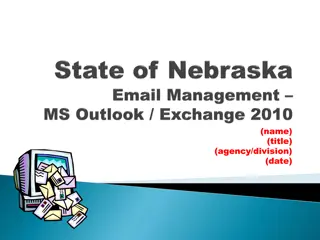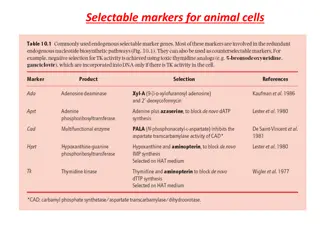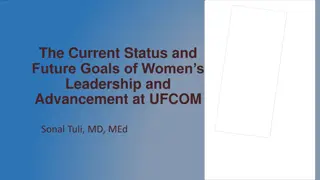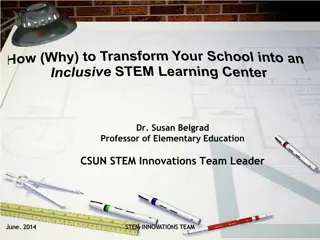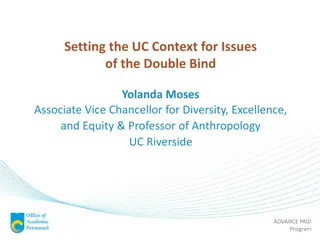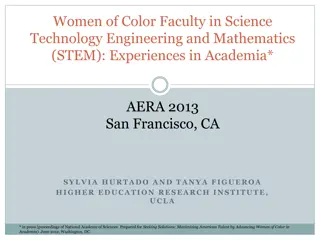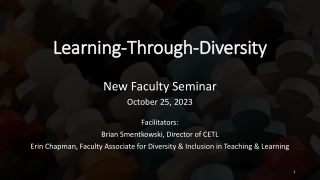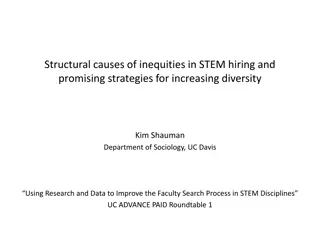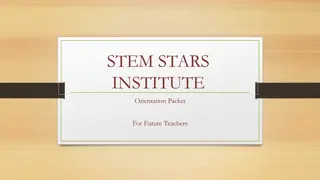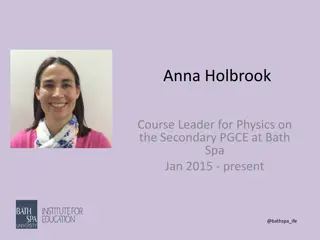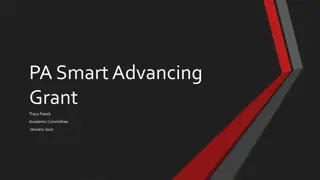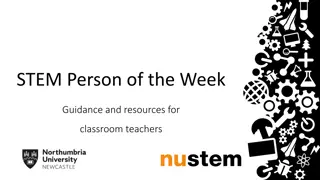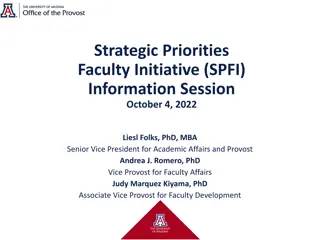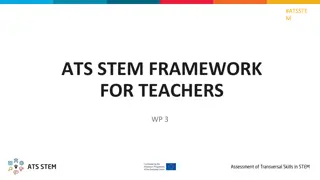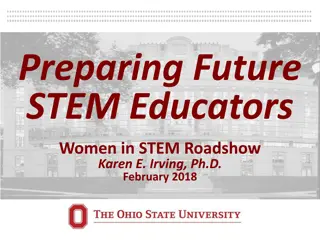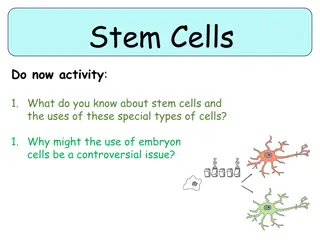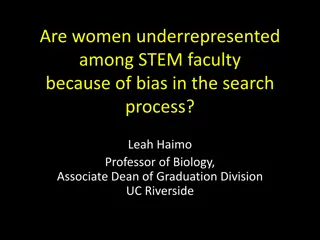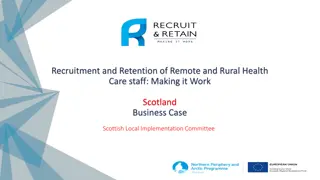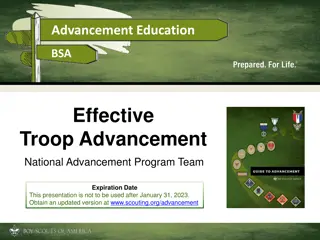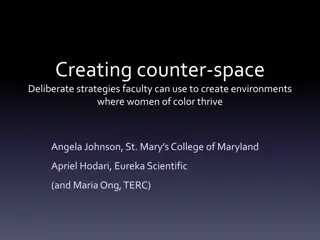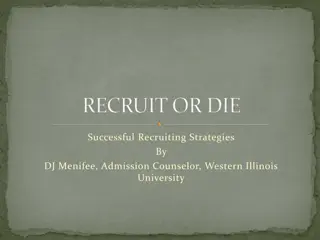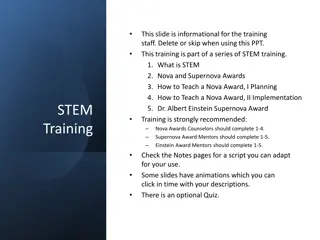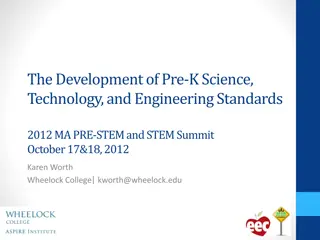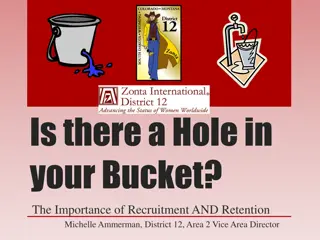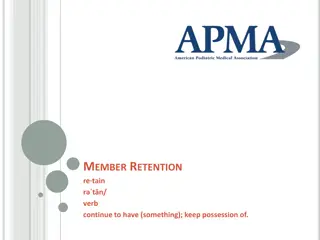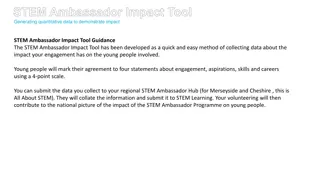Research Study on Recruitment, Retention, and Advancement of Women and URM in STEM
Delve into the initiatives and findings of a comprehensive research study aimed at enhancing the presence and success of women and underrepresented minorities in STEM fields at the University of Toledo. The study explores effective mechanisms, supportive frameworks, interdisciplinary networks, and areas for gender parity improvement through detailed surveys, focus groups, and specialized STEM-only surveys. Initial responses and discipline breakdowns shed light on challenges and opportunities in fostering diversity and inclusivity in STEM disciplines.
Download Presentation

Please find below an Image/Link to download the presentation.
The content on the website is provided AS IS for your information and personal use only. It may not be sold, licensed, or shared on other websites without obtaining consent from the author. Download presentation by click this link. If you encounter any issues during the download, it is possible that the publisher has removed the file from their server.
E N D
Presentation Transcript
Recruitment, Retention and Advancement of Women and URM in STEM Jamie Barlowe, Karen Bjorkman, Patricia Case, Edith Kippenhan, Monita Mungo University of Toledo
Objectives of Research Study To determine effective mechanisms for increasing the presence and successes of women and URM in STEM disciplines. To work to build supportive administrative frameworks for success. To assist with building interdisciplinary support networks for research, mentoring and social well-being of women in STEM. To determine areas where we have work to do on gender disparities across the campuses. Internal Research funding awarded for AY2017-2018: $20,000
Methods/Outcomes of Research Study Examination of Outcomes of UT Biennial Climate Surveys (2010- 2016), including: Satisfaction with UT, unit, support (time & funding) (42% of women/61% of men felt they had adequate time for work) Job Stress by gender, e.g., departmental politics (80% of women/62% of men reported stress from departmental politics); Stress outside job, e.g., primary care giver for children or someone who is ill (53% of women/35% of men reported stress as care giver) Attitudes/Assumptions about Gender, e.g., women faculty with children less committed to career, and Practices/Implicit Bias, e.g., less access to departmental resources and greater expectations for service
Methods/Outcomes: Focus Groups The Climate survey data informed focus groups. Focus groups showed that women in STEM at UT have difficulty being taken seriously. Are more likely to carry service burdens. Feel less respected. Struggle to find work/life balance. Sense that the previous generation of academic women are not supportive of work/life balance: either/or approach to family/career.
Method/Outcomes: STEM only survey Designed to increase STEM participation. Better data to look at gender differences for STEM only. Allowed us to look closely at issues around mentoring needs and work-life balance issues. Analysis of data in progress Next 6 slides provide response rate and some preliminary data
Responses Respondents Female Male Gender Fluid Declined to Answer Total N 29 47 4 21 101 % 38.2 61.8
Discipline by Gender Discipline 20 18 16 14 12 10 8 6 4 2 0 Engineering Medical Sciences Natural Sciences Social Sciences Female Male
Rank by Gender Rank 20 18 16 14 12 10 8 6 4 2 0 Lecturer Assistant Professor Associate Professor Professor Female Male
Social Perceptions Measure Respect Valued Included Heard Engaged Overwhelmed Male 5.31 5.33 5.29 5.00 5.51 4.93 Female 5.36 5.0 4.72 4.88 5.42 5.19 More variance in responses for females across all variables analyzed for this report.
Work-Life Balance Measure I have an equitable Service Load I struggle to find a work-life balance. I have no time to socialize. I feel guilty for taking time to socialize. I work long hours. I put work over family. I put family over work. I have no life outside of work. Male 4.58 4.36 3.77 3.38 4.21 3.89 2.33 3.85 Female 4.57 5.21 4.88 4.13 5.09 3.78 3.08 4.21 Significance 2.83 (p .04) 2.67 (.01)
Family Versus Career Measure Male Female Significance I have been told that children interfere with your career. 2.29 4.67 3.49 (.001) I have heard that academics should not have a family to advance career. I have been reprimanded for missing work to care for family. I do the majority of family care. 2.72 4.85 3.16 (.003) 1.3 2.23 2.47 (.02) 2.87 5.29 4.24 (.000) My colleagues expect me to put my career first. 2.31 3.83 3.78 (.001) My chair expects me to put my career first. 1.85 3.0 2.61 (.01) Academics should expect to put their career first. 3.8 2.85 I am willing to put my career before my family. 3.68 3.69 If UT had childcare life would be easier. 3.83 5.4
Outcomes: Research Showcase and Celebration of UT Women in STEM March 22, 2018 Dr. Heather Burton, Director, IDEAL-N Keynote Speaker Presentation of preliminary results of Research Study Research presentations/posters Reception in celebration of women in STEM faculty
Outcomes: Conference Presentation & Article Submission Our two social science team members, Dr. Patricia Case and Dr. Monita Mungo, are presenting data from our study at the North Central Sociological Association Conference in Pittsburgh today An article proposal on research study submitted
Next Steps Summer 2018 Research Funding and mentoring of female graduate students in STEM disciplines. Fund mentoring initiatives in STEM departments. Submit NSF grant to assist with recruitment, retention and advancement initiatives. Continuing highlighting Women in STEM research on our IDEAL-N website Continuing review of Dual Career Hiring Policy Our work is informing a new university-wide faculty mentoring plan, including (Rocket) Launch committees
